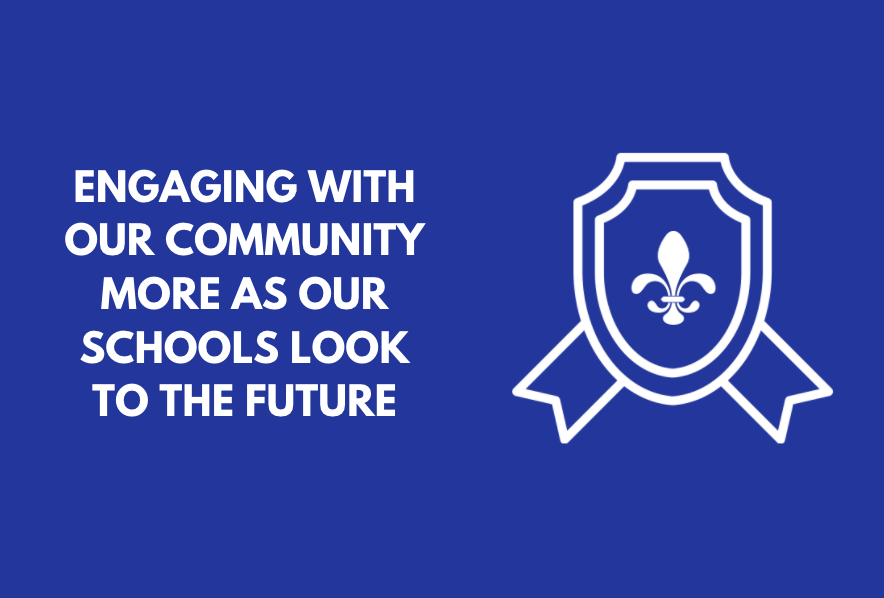 |
In advance of the December 5th runoff elections, our Chief of Schools, Dr. Jawan Brown Alexander, reflects on the nature of our school system and its potential for our children if we work together and build on our collective progress. |
On December 5th, voters in districts 2, 4, 5, 6, and 7 will vote on their candidates for Orleans Parish School Board (OPSB). As our community looks to elect our school board members, we should build a board that looks to the future, while honoring our schools’ proud legacies. We must build on the strong work our district, schools, and educators have done over many years, even with more rigorous standards and a more robust accountability system of late. We must neither insist we are perfect nor throw away all that our system has accomplished.

I have very fond memories of our school district in years past. I was an educator in that system. I was also a student at Eleanor McMain Secondary School in the late 1980s and early 90s, where I received an incredible education.
In recent years, New Orleans has become a public charter district. Shifts and accountability measures over the past few years have not always gone smoothly, but they have brought new opportunities and forced us to develop new approaches. As instructional standards, curriculum, assessments, and overall accountability requirements have grown more rigorous, New Orleans educators have worked hard to educate students amidst the inequities that our communities face.
Educational opportunity has grown. Our students’ college entry rate grew from 37% in 2004 to 61% in 2019. The share of students in “A” or “B” schools in our city has more than doubled since 2005. Our educators and students, of course, did that hard work, but our district structure helped to facilitate it. Schools in New Orleans are overseen by OPSB and our district superintendent, Dr. Henderson Lewis, Jr., but as public charter schools, they have more autonomy than traditional districts in areas such as curriculum, hiring, and school models. With much left to do, this has led to that academic growth and increased college access. This is an issue of not just educational opportunity, but also racial equity, with families understanding the value of a district like ours. According to a 2018 Benenson Strategy Group poll, a majority of Black and Latinx Democratic primary voters view charters favorably.
The current model also allows for geographic diversity. When I attended McMain, it was one of a few “citywide access” schools. This allowed me to learn from peers with different backgrounds, ethnicities, and experiences than my own, who came from Uptown, Downtown, Treme, the Lower Ninth Ward, and Carrollton. It was better than a melting pot—it was a gumbo. (Though McMain was then selective, today it is not. It is open-enrollment, like the vast majority of public schools citywide.)
The unique citywide model has also served us well as we stare down a pandemic. At the beginning of the crisis, school leaders utilized their autonomy to swiftly provide food programs and technology for students, without moving through bureaucracy. When they needed help filling gaps, the district stepped in to coordinate feeding sites and provide technology so children could connect. Our schools have innovated to meet students’ distance learning needs and our district has engaged partners to help with building professional learning communities for educators.
Crucially, many schools have worked hard to preserve their history and culture, and many have strong partnerships with active alumni from years past. These groups help our children understand the legacy left by leaders that came before them. Alumni, families, and community members are at football games, graduations, mentoring meetings, and tutoring sessions. That impact may be harder to measure with numbers, but it is felt deeply and powerfully in the relationships and the culture a school holds.

There are certainly challenges we face. We need to figure out a way to save on transportation expenses when students have access to schools across town. We must find ways to increase teacher pay and develop support for Black leaders—as must traditional districts. As we find solutions to these and other challenges, we must absolutely find better ways to connect with and engage our full community. Our district must create spaces to continuously hear from our students, teachers, and parents as school leaders implement new approaches. We must find ways to better communicate our system’s strengths and weaknesses to our entire community.
As we work together on behalf of children, let’s not erase the gains of recent years in favor of returning to a more top-down, traditional district. What we have collectively been able to create is unprecedented and it would be wise to continue to improve it. To do so, OPSB members, no matter who is elected, must lean in and listen. Is our system perfect? Of course not–but what system is? We will continue to reach for better, though—and to create the educational opportunities our children deserve, we must truly listen, work together, and build on what’s working today.
